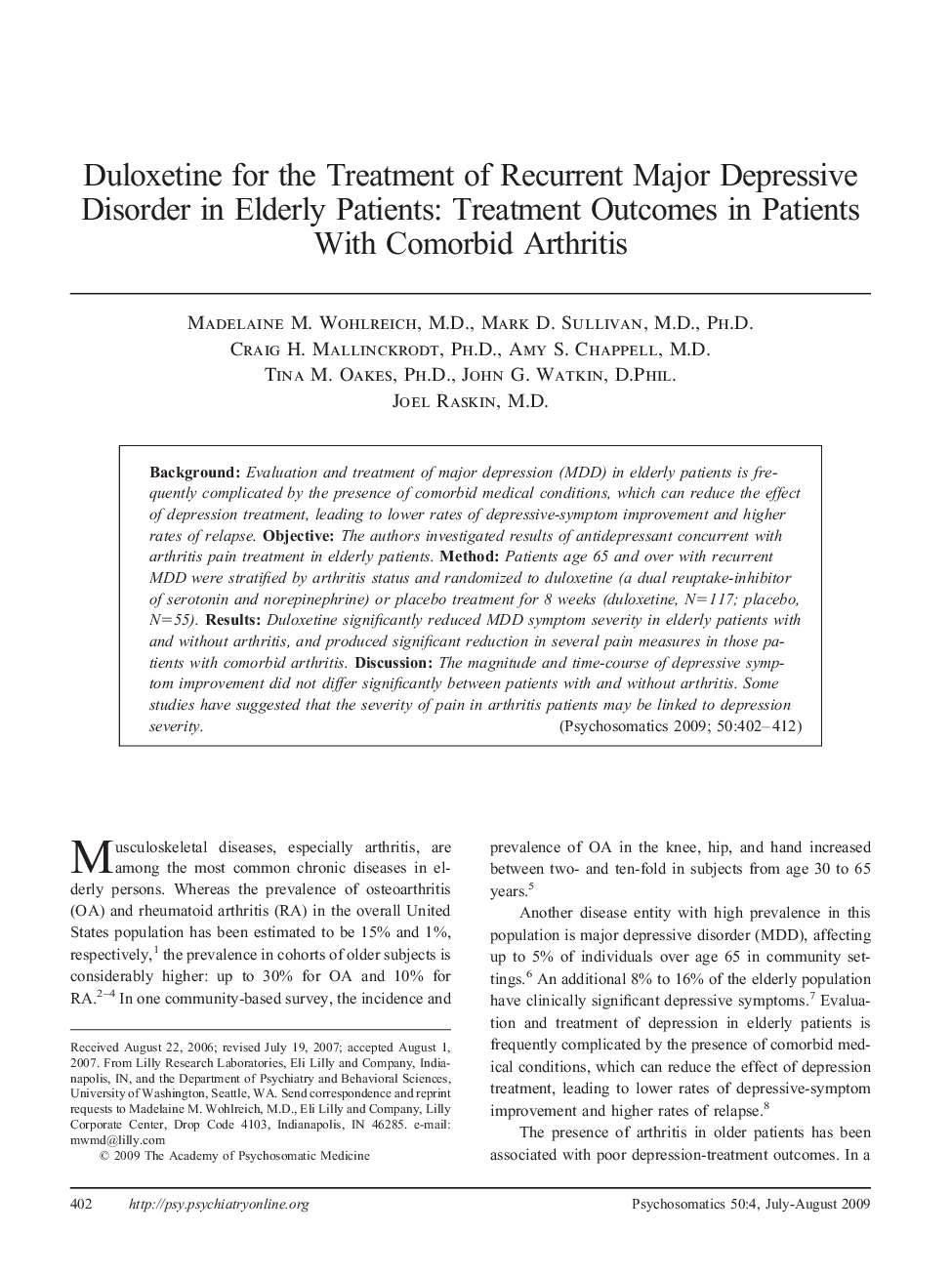| کد مقاله | کد نشریه | سال انتشار | مقاله انگلیسی | نسخه تمام متن |
|---|---|---|---|---|
| 338740 | 547980 | 2009 | 11 صفحه PDF | دانلود رایگان |

BackgroundEvaluation and treatment of major depression (MDD) in elderly patients is frequently complicated by the presence of comorbid medical conditions, which can reduce the effect of depression treatment, leading to lower rates of depressive-symptom improvement and higher rates of relapse.ObjectiveThe authors investigated results of antidepressant concurrent with arthritis pain treatment in elderly patients.MethodPatients age 65 and over with recurrent MDD were stratified by arthritis status and randomized to duloxetine (a dual reuptake-inhibitor of serotonin and norepinephrine) or placebo treatment for 8 weeks (duloxetine, N = 117; placebo, N = 55).ResultsDuloxetine significantly reduced MDD symptom severity in elderly patients with and without arthritis, and produced significant reduction in several pain measures in those patients with comorbid arthritis.DiscussionThe magnitude and time-course of depressive symptom improvement did not differ significantly between patients with and without arthritis. Some studies have suggested that the severity of pain in arthritis patients may be linked to depression severity.
Journal: Psychosomatics - Volume 50, Issue 4, July–August 2009, Pages 402–412